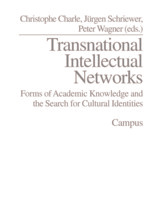Engineering Stability: Rebuilding the State in Twenty-First Century Chinese Universities
University of Michigan Press, 2024
Cloth: 978-0-472-07705-2 | Paper: 978-0-472-05705-4 | eISBN: 978-0-472-90467-9 (OA)
Library of Congress Classification LC179.C6Y26 2024
Dewey Decimal Classification 378.51
Cloth: 978-0-472-07705-2 | Paper: 978-0-472-05705-4 | eISBN: 978-0-472-90467-9 (OA)
Library of Congress Classification LC179.C6Y26 2024
Dewey Decimal Classification 378.51
ABOUT THIS BOOK | AUTHOR BIOGRAPHY | REVIEWS | TOC | REQUEST ACCESSIBLE FILE
ABOUT THIS BOOK
While the processes of founding a new state or constructing a new political order after a transition have been well-studied, there has been much less attention to how regimes that survive major political crises purposefully reinvent a postcrisis state to respond to updated concepts, new circumstances, changed social demands, and a realigned elite consensus. In Engineering Stability, Yan Xiaojun examines the Chinese Communist Party’s efforts to reassert control and restore order on university campuses in the post-Tiananmen era. Since prominent national universities serve the nation-state as training grounds for the country’s future political, economic, and cultural elites, public life on university campuses has immediate political relevance.
Drawing on rich materials gathered from in-depth field research in China during the Xi Jinping era, Engineering Stability invites scholars of comparative politics, state theory, contentious politics, and political development to rethink and reimagine how what Yan calls “a compromised autocratic state” is rebuilt within and from itself after overcoming a traumatic moment of vulnerability. The book further details the four types of infrastructure — institutional, significative, regulatory, and incentivizing — that state rebuilders need to overhaul, and looks into the campaign of state rebuilding in post-Tiananmen Chinese universities and its implications for our understanding of politics in general.
Drawing on rich materials gathered from in-depth field research in China during the Xi Jinping era, Engineering Stability invites scholars of comparative politics, state theory, contentious politics, and political development to rethink and reimagine how what Yan calls “a compromised autocratic state” is rebuilt within and from itself after overcoming a traumatic moment of vulnerability. The book further details the four types of infrastructure — institutional, significative, regulatory, and incentivizing — that state rebuilders need to overhaul, and looks into the campaign of state rebuilding in post-Tiananmen Chinese universities and its implications for our understanding of politics in general.
See other books on: Asian Studies | Higher education and state | Rebuilding | Universities and colleges | Zhongguo gong chan dang
See other titles from University of Michigan Press

























